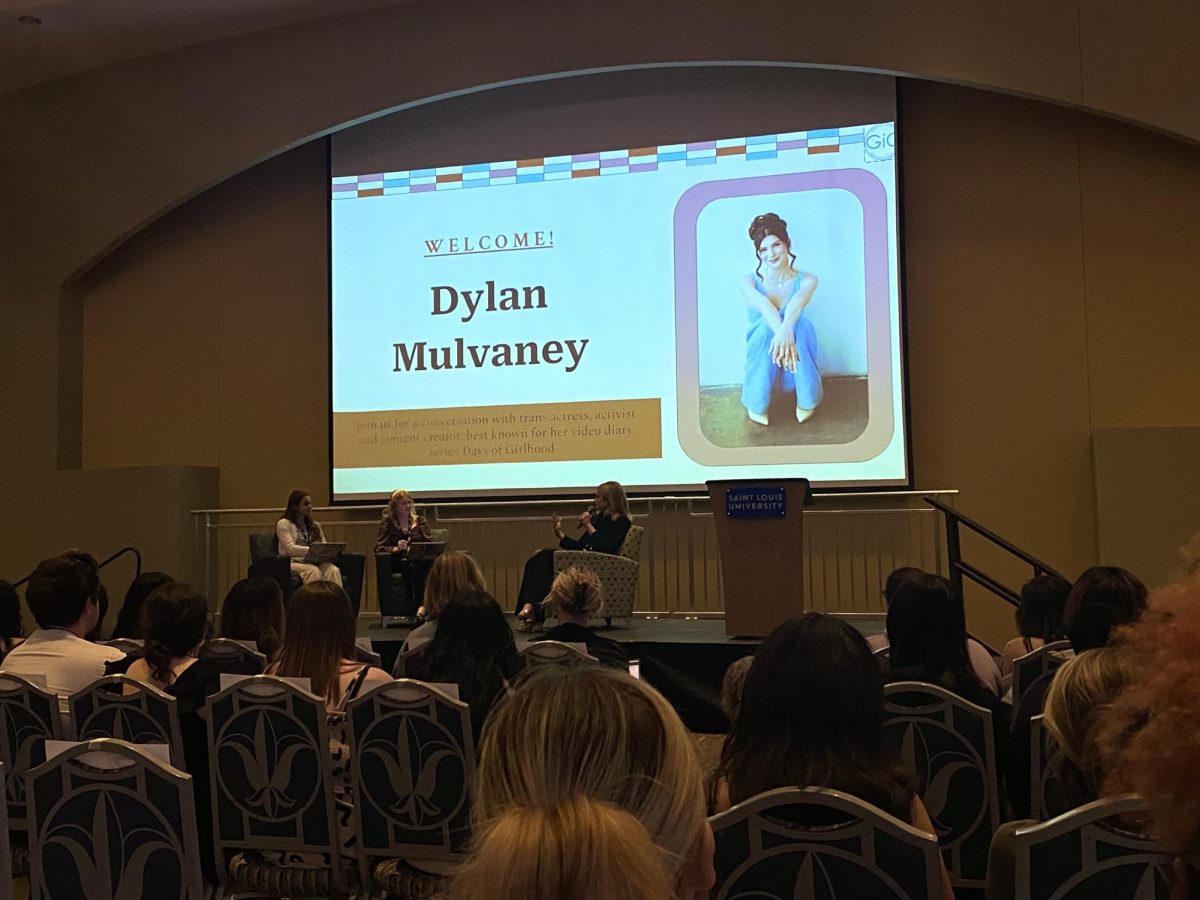Saint Louis University has decided to sponsor two St. Louis charter schools, Shearwater High School and the Grand Center Arts Academy, both of which opened doors earlier this August.
By following the Jesuit mission of “men and women for others,” SLU has agreed to sponsor the schools in hopes to be of service to the St. Louis community.
“[SLU sponsorship] is an expression of our mission and really nothing more than that,” said Steven Sanchez, Assistant Provost and Frost Campus Vice President. “It is a community outreach and service initiative.”
Shearwater, located in the Fountain Park neighborhood at Ranken Technical College, began classes Aug. 2. Shearwater seeks to lower the high school drop-out rate of disconnected youths, ages 17 to 21, in the St. Louis area by integrating mathematics, science, communication and financial education into the lives of its students, promising that each graduate will be fully prepared to enter college or the workforce. Students will attend classes in the morning and disperse to paid internships in the afternoon, all the while learning how to become financially responsible.
The Grand Center Arts Academy, temporarily located at the Third Baptist Church, began classes Aug. 16. Students of various social and economic statuses are welcome to come and explore different areas of the arts in its curriculum, which includes visual arts, music and theater. The Grand Center Arts Academy plans to be permanently located in the Beaux Arts Complex following the completion of renovations next spring. The school now serves children in the sixth and seventh grades, but will add a grade each year until grade 12 is established.
In order for a charter school to receive accreditation in St. Louis, the school must obtain a sponsor from a college, university or the public school district, Sanchez said.
“The original law in the state of Missouri was primarily focused on using charters as a mechanism for improving urban schools where it was determined that that was the greater need,” Sanchez said. Under Missouri law, charter schools may only be under operation in the city of St. Louis and Kansas City.
In St. Louis, charter schools are funded on a per-pupil basis from the state of Missouri. Sanchez said that SLU does not fund the operation of the charter school, but rather oversees the operation by making sure that the board of trustees of the particular charter school adheres to the bylaws and agreements previously made with the university. If SLU discovers that the charter school is not abiding by said obligations or state laws, then the university has the authority to remove sponsorship.
“Sponsors actually get compensation for [sponsorship] from the state of Missouri,” Sanchez said.
SLU will obtain 1.5 percent of the income generated from the fund for each charter school to defray the cost of sponsorship efforts; a sum that Sanchez said is not very substantial.
“That’s okay because we aren’t in it for money. This is an outreach. We can verify that because we aren’t bringing in barely anything,” Sanchez said. “We’re spending a lot of time and energy on it, which we should as good sponsors. You don’t take on the responsibility without being willing to provide very involved sponsorship.”
SLU can serve as an adequate sponsor for charter schools, Sanchez said, because of the wide variety of services and facilities that the university has, such as the educational, medical and fine arts departments.
Students within the educational department can practice student teaching at the charter schools, while SLU faculty can serve as mentors to the teachers. Charter school students studying fine arts may use SLU facilities to broaden their educational experience by attending collegiate performances or visiting student art exhibits.
“Colleges are sort of weird, wonderful places because they have this array of expertise, service opportunity and outreach learning for everybody,” Sanchez said. “They can do things that other entities that might be a sponsor, such as a nonprofit organization, cannot. Universities have this potential to offer so much more.”
In turn, students at charter schools may also be beneficial to the SLU community, as interns from Shearwater may be employed by the university.
Sanchez said that he hopes the two schools opening this year may be as successful as the City Garden Montessori, which SLU began sponsoring three years ago. Since its opening, Sanchez said City Garden Montessori has flourished so much that many applicants are placed on a waiting list and several families have begun to move into the neighborhood just so that their children may attend the school.
Unlike City Garden, Shearwater High School and the Grand Center Arts Academy do not limit student attendance to boundaries and districts. Instead, the schools welcome students from all regions of St. Louis city and county.
Sanchez said that charter schools serve as a mechanism for experimental education, offering a different approach than public and parochial schools that may in turn improve the schooling of students. He said that by exploring different models of pedagogy, charter schools have the ability to act as examples to public and parochial school models, and vice versa.
Opponents to charter schools argue that such an innovative model of education may take away from the curriculum of public schools by borrowing students from the district. Sanchez argues that in order for public schools to improve, charter schools are necessary.
“If you don’t invest in research, you never change what you are doing. Sometimes you have to look at the bigger picture,” Sanchez said, hoping that one day charter schools will put each other out of business. “If done right, charter schools should improve and augment the public school to the point at which there would be no need for a charter school. The goal is to learn from the charter experience and go back and inform so that all education is better served.”






